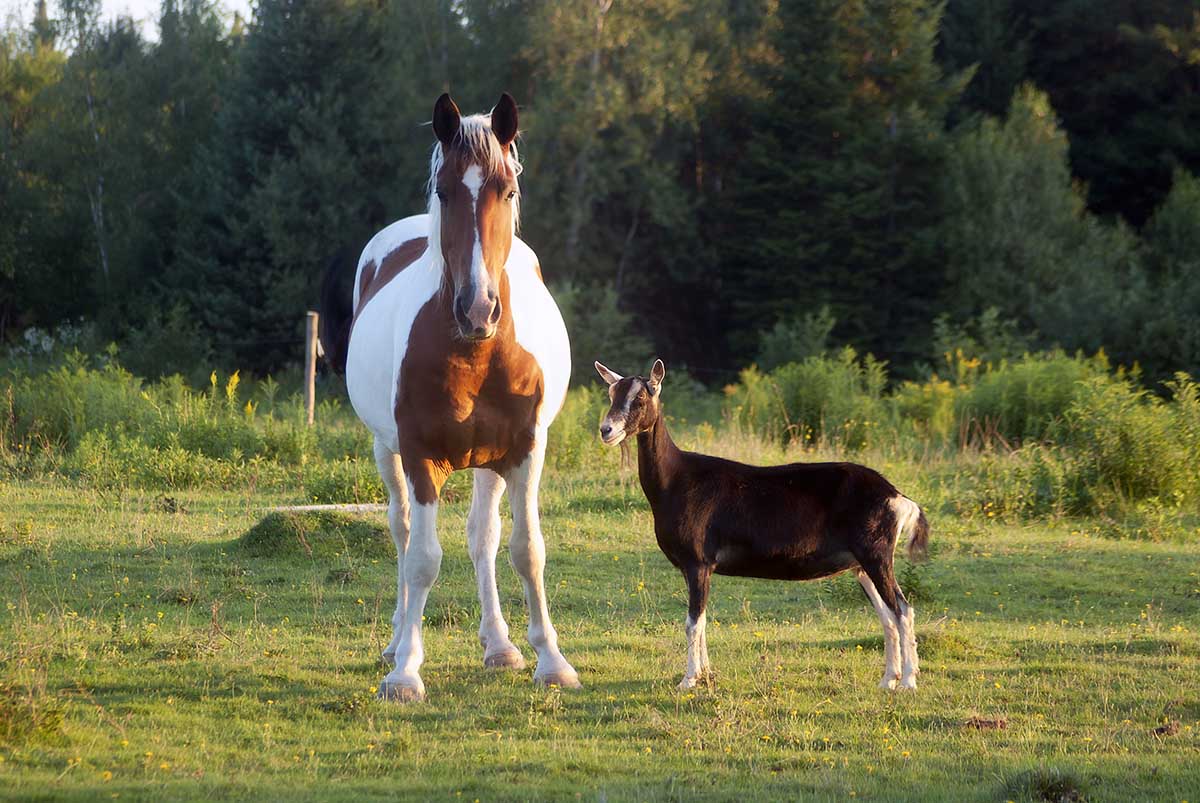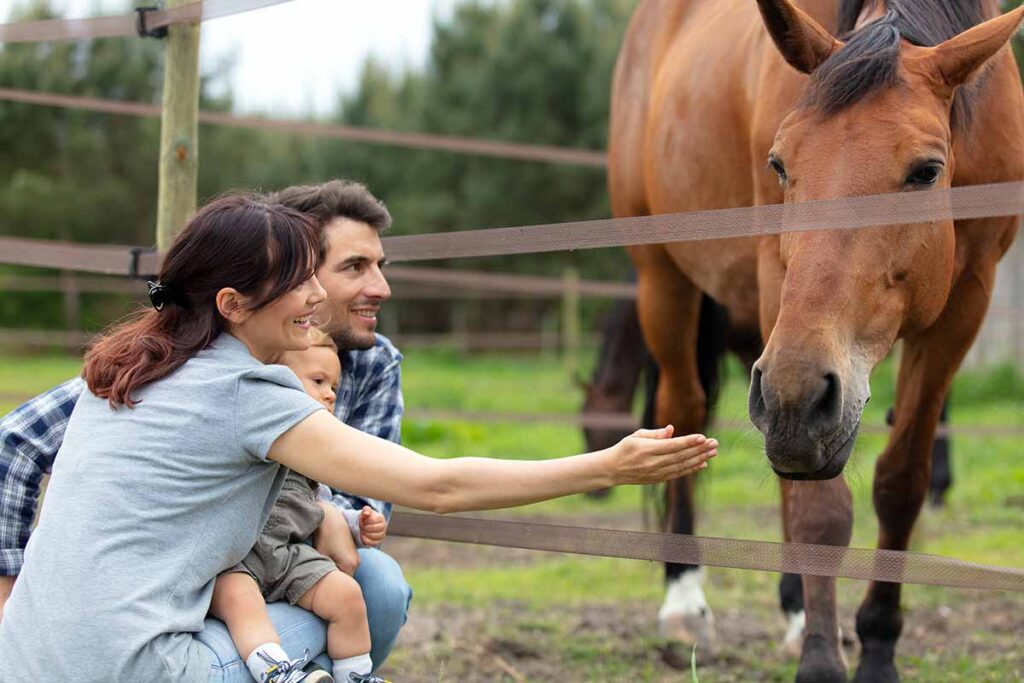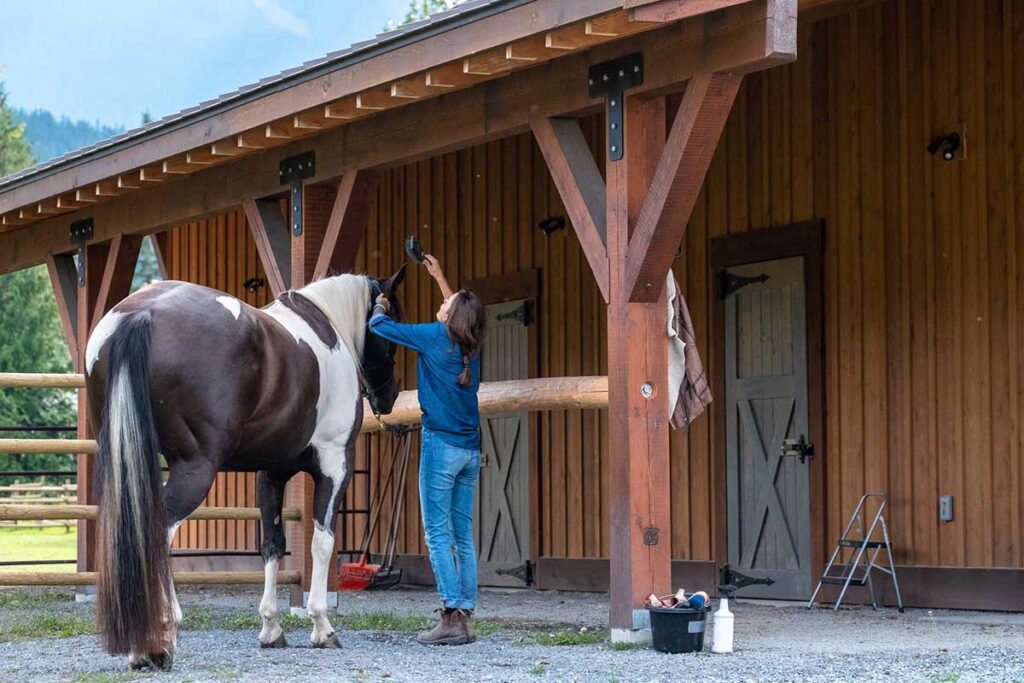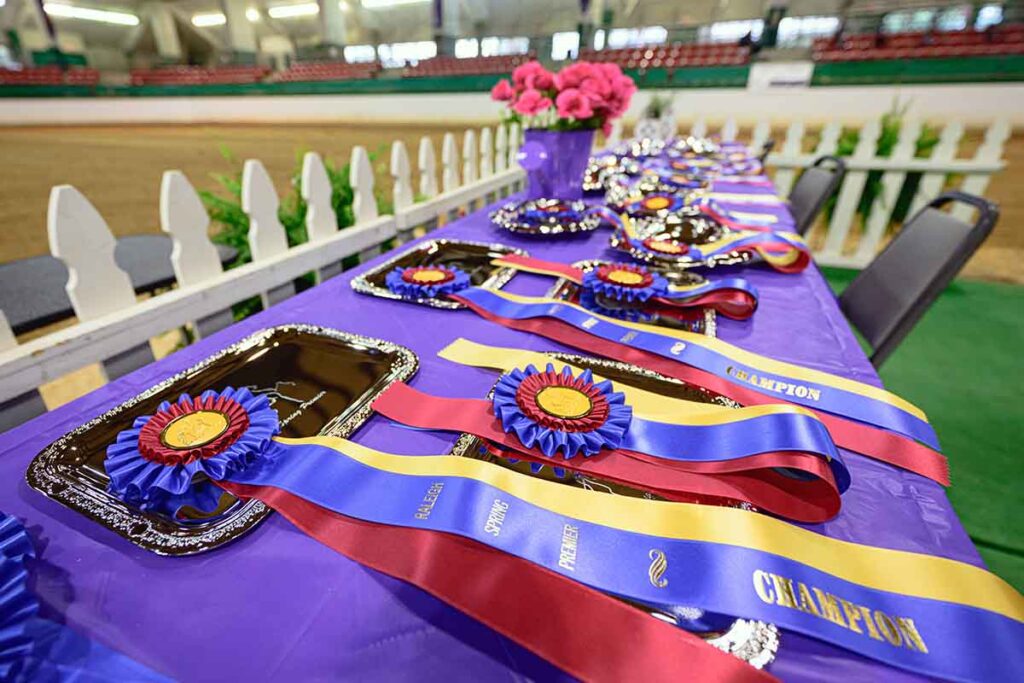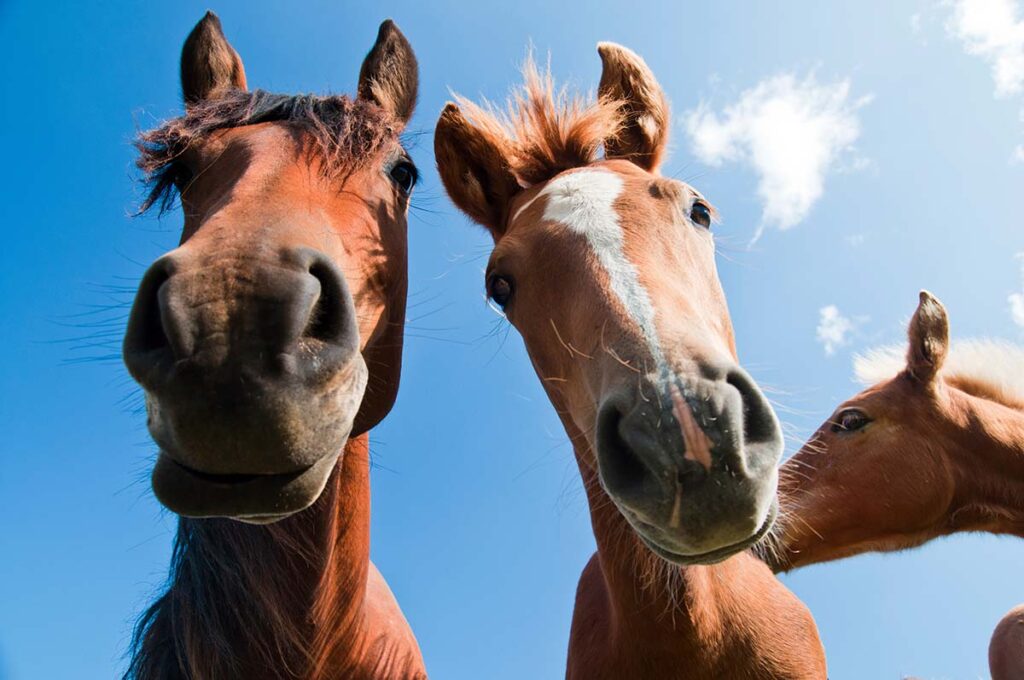As herd animals, horses are highly social and feel safer living in groups. While horses often form strong bonds with their humans, that doesn’t fully satisfy their natural inclination to live in a herd.
Some horses that live alone can be anxious, which can lead to health problems such as gastric ulcers or nervous behaviors like pacing and cribbing. So, providing another animal of similar or compatible temperament can offer comfort.
Donkeys, ponies, and mini horses can be excellent companion animal options. They are smaller than horses, so they take up less space, require less food, and produce less manure. They also eat a similar diet, making integrating them into your routine simple.
Some horse owners add a cow to their horse’s living space. They, too, eat a similar diet based on grass and hay, though it’s important to choose a grain formulated for each species to avoid toxicity issues. A benefit to having a cow with a horse is the two species have different internal parasites, which means they disrupt the life cycles of each other’s parasites, helping keep both healthier.
But adding a cow or another equid—even a smaller one like a donkey or mini—might not be feasible. You might have not the space or the resources to add to the herd. In this case, smaller animals can also make suitable companions for horses.
4 Companion Options for Your Horse
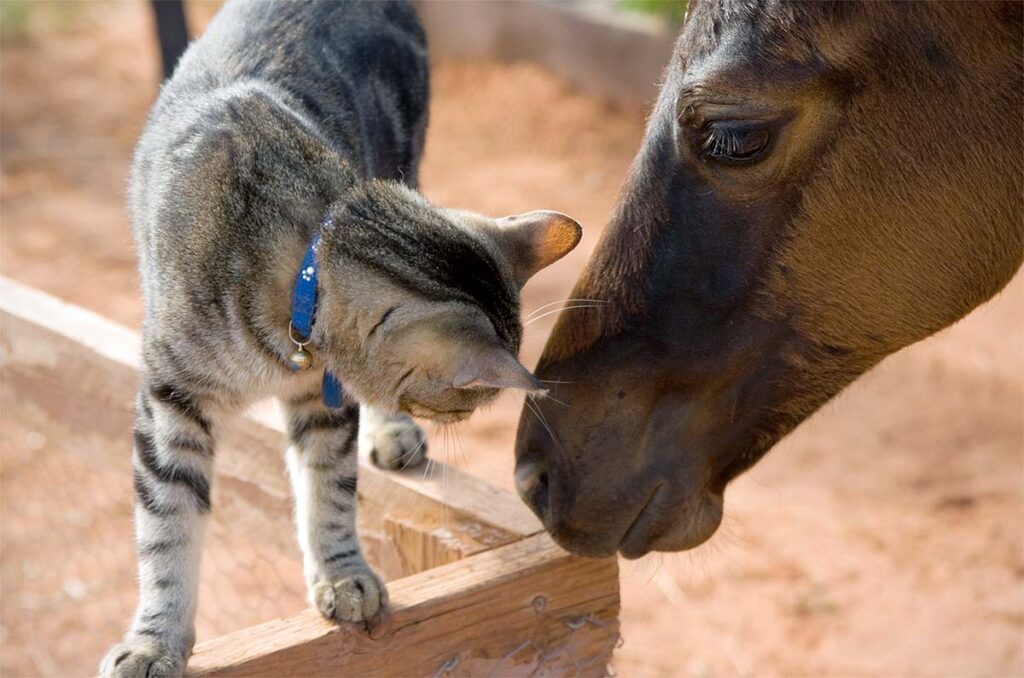
Here are four animals that commonly provide horses with companionship:
- Dogs: It’s rare to find a barn without a dog; the two species tend to coexist happily. As a bonus, most dogs travel well, making it easy to bring the horse’s buddy along when traveling to shows and events.
- Cats: Cats, too, are frequent barn residents and can develop bonds with horses. Some cats will even curl up on the horse’s back. Plus, cats help control rodent populations on the premises.
- Goats: Goats are highly social, friendly animals that bond quickly with horses. Like dogs, they travel well and can accompany your horse on trips. Their diet is similar to that of horses, but goats are not picky. So, they will eat woody shrubs or other less desirable plants in the pasture that horses leave behind. However, goats are curious and can be escape artists, so be sure you have good fences to keep them corralled. They can be mischievous and like to jump on things, so if you let them run loose, know that might even include your vehicle’s hood!
- Pigs: An internet search will return mixed advice about buying pigs as companion animals for horses. Some sources say they are not a good match, while others share that their horses and pigs are the best of friends. Consider the temperament of both animals and introduce them slowly to be sure neither will be aggressive toward the other.
Take-Home Message
Whether it’s a donkey, a dog, a goat, or another animal, a companion can fulfill your horse’s natural desire to live in a group setting. Before bringing another species home, consider your facilities, the species’ nutritional and veterinary needs, and the investment you can make in its care. The best match depends on your horse’s individual needs and your preferences and resources.
Related Reading: Smart Strategies for Handling Anxious Horses
Katie Navarra Bradley is a writer and author who covers horses, agriculture, and sustainability. She also partners with horses to deliver equine-assisted business and leadership coaching.
Are you enjoying this content? Sign up for My New Horse’s FREE newsletter to get the latest horse owner info and fun facts delivered straight to your inbox!

